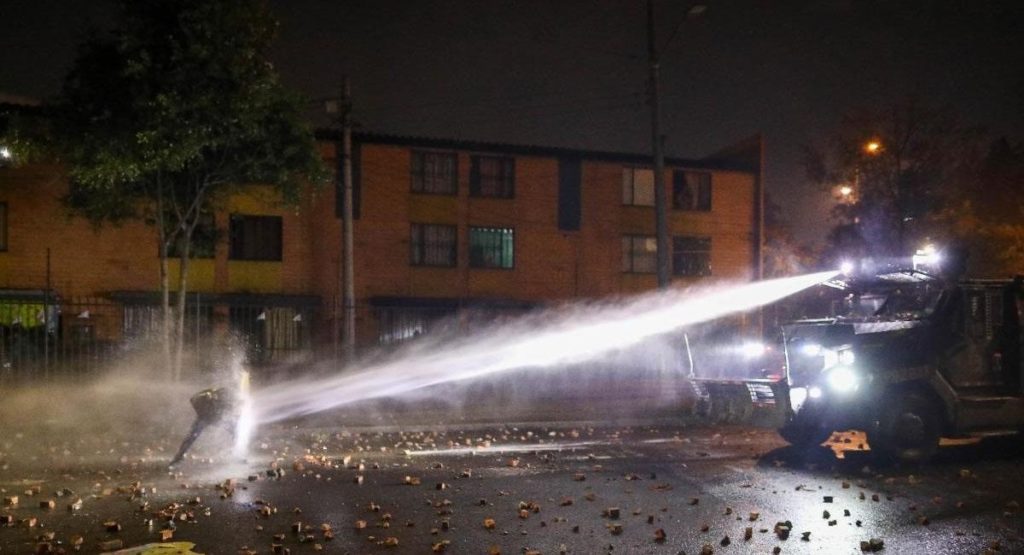Highlight 19/2023 – Use of Force Governance: From the United Nations to the Organization of American States and Colombia
Juan Camilo León Pamplona, 22 June 2023

The concepts of Governance, Use of Force (UoF), Security Sector Governance (SSG), and Security Sector Reform (SSR) represent key ideas that provide insight into how the governance of UoF can impact the legitimacy, public trust, and effectiveness of police institutions when dealing with public gatherings. If you conduct a brief online search using the term UoF you will come across various results. These outcomes can range from news reports highlighting violent incidents, sometimes resulting in fatalities, involving excessive UoF by police officers towards civilians. Conversely, you may also find guidelines provided by police institutions on the appropriate UoF or academic research discussing methods to prevent misuse and promote responsible UoF. This can create the impression that there is either a significant number of alarming cases where police officers employ force unnecessarily against citizens or that the guidelines followed by police institutions regarding the proper use of force are overshadowed by tragic stories.
The publication titled « Use of Police Force: A Framework to Ensure Good Governance over the Use of Force » by DCAF offers a perspective on how these challenges can be addressed by proposing a framework that encompasses three main pillars: Rule of Law, Resources, and Accountability. This framework applies to various dimensions, including external factors, organizational aspects, and individual responsibilities. Furthermore, DCAF’s upcoming release, the « Governance on the Use of Force: A Police Self-Assessment Guide, » will enable police institutions to evaluate and tackle their UoF-related issues, gaps, challenges, and opportunities for improvement. This assessment guide focuses on the same three pillars mentioned earlier, which drive UoF governance.
To illustrate these concepts, United Nations documents such as the 1979 Code of Conduct for Law Enforcement Officials, 1990 UN Basic Principles on the Use of Force and Firearms by Law Enforcement Officials and the 2020 Office of the UN High Commissioner for HR Guidance on Less- Lethal Weapons in Law Enforcement establish a framework of principles regarding UoF. Afterwards, on a regional level, the contributions of the Organization of American States, particularly at the Inter-American Commission and Court of Human Rights level, in terms of their conclusions and rulings on UoF from the 1996 Case 11.142 Arturo Ribón Avila (Colombia) to the 2018 Case of Women Victims of Sexual Torture in Atenco v. Mexico provide key insights as to how the regional organizational understands and deals with the UoF. Ultimately, the situation in Colombia, specifically the repetitive National Strikes and the specific patterns of police opposition from 2019, exemplify how the three pillars can enhance the legitimacy, public trust, and effectiveness of police institutions when dealing with public gatherings in such circumstances.
Juan Camilo León Pamplona, Highlight 19/2023 – Use of Force Governance: From the United Nations to the Organization of American States and Colombia, 22 June 2023, available at www.meig.ch
The views expressed in the MEIG Highlights are personal to the authors and neither reflect the positions of the MEIG Programme nor those of the University of Geneva.
